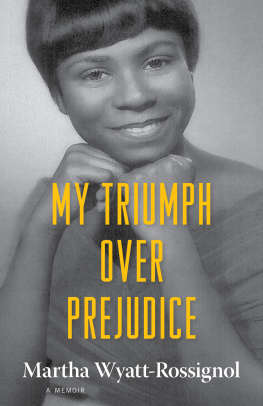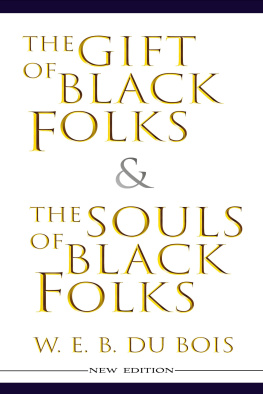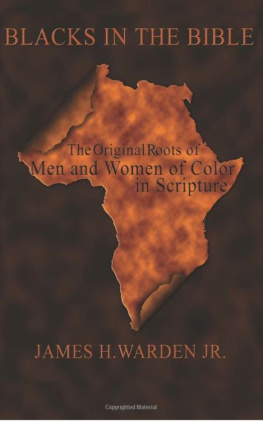Mississippi Black History Makers
Mississippi Black History Makers
Revised and Enlarged Edition
by
GEORGE A. SEWELL
and
MARGARET L. DWIGHT

Copyright 1984 by the
University Press of Mississippi
All rights reserved
First Edition published 1977
Print-on-Demand Edition
This volume sponsored by
ALCORN STATE UNIVERSITY
Library of Congress Cataloging in Publication Data
Sewell, George Alexander.
Mississippi black history makers.
Includes bibliographical references and index.
1. Afro-AmericansMississippiBiography. 2. MississippiBiography. I. Dwight, Margaret L. II. Title.
E185.93.M6S48 1984 920.0092960730762 84-3511
Contents
Preface
This edition of Mississippi Black History Makers, like the first edition published in 1977, presents a panorama of biographical profiles on Mississippi blacks who have made significant contributions in bringing about the uplift of the black race, from the mid-nineteenth century to the present. Its purpose is to reveal the most effective struggles of a people who dared to venture forth into white society and who succeeded in breaking down racial barriers. Within the biography of each individual mentioned is also the life and story of a people who resisted oppression and survived. Collectively, the biographies of those featured show the transformation of Mississippi from a closed society to a pluralistic one.
For the first edition, we are indebted to the late George Alexander Sewell, whose foresight and dedication made Mississippi Black History Makers possible. Dr. Sewell began the project in the early 1970s when he was a distinguished professor of sociology at Alcorn State University. This scholar, minister, and civic leader rendered decades of unselfish service to the university and surrounding communities and imprinted the pages of history as surely as those he honored.
In her introduction to the first edition, author-educator Margaret Walker Alexander wrote about the significance of black achievements in Mississippi:
Slavery, Reconstruction, and segregation, all so difficult, have presented such overwhelming obstacles in the path of the Negro that, like the handicapped horse winning the race, the black Mississippian has been more than determined to succeed, to rise about every obstacle that has impeded him, and to achieve national greatness. Surely the hardships, the provincial atmosphere, the oppressive social system all have contributed to a climate for genius in Mississippi. This is an anomaly, a peculiar irony, but nevertheless true: Mississippi has truly become a climate for genius. If, then, such a great record of achievement has been accomplished under slavery and segregation what will such people do with freedom in an open society? Surely greater things are yet to come, for a great racial heritage always envisions a greater destiny!
Freedom came, and new leaders emerged. Because of these changes and because of the inadvertent omission of some well-known figures, it became necessary to revise Mississippi Black History Makers. Several changes characterize this edition. In an effort to chronicle the accomplishments of black Mississippians systematically, the book has been organized into ten thematic sections; each section is introduced with an historical overview. For this edition, seventy five black history makers have been added, and information about the contemporary figures has been updated with primary source material.
This work is not intended to be an exhaustive study of all Mississippi black heroines or heroes. It would be impossible to discover every individual whose life reflects the uplift and assimilation of the black race into the mainstream of society. Yet it is the task of the scholars of each generation to identify, record, and place in perspective the work of those figures who, they believe, have improved the quality of life for mankind. The selection process was by no means an easy one. Guided by responses from community leaders and organizations and by the availability of primary and secondary sourcesparticularly oral sources, I included representative figures from several professions.
For this book, a Mississippi black history maker is a person who was either born in Mississippi and spent a part of his life here or one who migrated into the state and remained. Some of those included achieved national, even international, prominence in their chosen fields. Others made lasting contributions within the state, as pioneers in fields where blacks had previously not been allowed, in so doing creating new avenues for others. A third group of lesser known history makers is included because these individuals have made outstanding contributions within their own community or profession and represent the many others not included who have similarly affected a select group of people.
It is impossible to acknowledge by name all the many individuals who gave invaluable assistance to this project. To all those who provided information and technical assistance, I extend a sincere thank you. I want to express my gratitude specifically to Dr. Walter Washington, president of Alcorn State University; Dr. Rudolph Waters, vice-president; Dr. Malvin Williams, academic dean; and Ralph Payne, director of public relations. Each believed that the task could be accomplished and entrusted me to complete it. Furthermore, throughout this project. Dr. Washington was encouraging and gave unselfishly of his time to make this book a success.
Very few individuals realize the magnitude of help, patience, and understanding that a writer receives from the publishing staff. I must singly and collectively thank Barney McKee, JoAnne Prichard, and others on the staff of the University Press of Mississippi. I also sincerely appreciate the time Mattie Sanders and Alice Dwight spent in typing the manuscript.
The sources of my inspiration were my mother, Lula M. Dwight, and my father, Benton Dwight, Sr. They and Dr. Ray Davis gave me moral support when I needed it. I am most grateful to them.
Margaret L. Dwight
Alcorn State University
Mississippi Black History Makers
POLITICS
To appreciate the impact that black politicians have had upon Mississippi society, one must understand that southern politics has historically been based upon the racial doctrine of white supremacy, Jim Crowism, and conservatism. Southern politics was oppressive to blacks and fed upon the denial of civil liberties, executive, judicial, and legislative inequality, and reinforced violence.
In the 1960s black politicians in Mississippi assessed their political strength, unified, and organized and used their political power base to influence change and control electoral decisions. Their political modus operandi depended upon the reinforcement of group values and participation as well as the consolidation of their power base. The election of blacks as U.S. Congressmen, state legislators, and city officials further increased the political awareness and political consciousness of black Mississippians. From Reconstruction to the present blacks exercised the elective franchise when they were not hampered by legal and illegal methods.
When blacks were emancipated in Mississippi three issues were important to them: suffrage, education, and land. Many believed that by obtaining the right to vote, they would get education and land. Consequently, they devoted much time and effort to acquiring the elective franchise. Under the Radical Republicans Reconstruction plan of 1867 seven hundred thousand blacks registered to vote. The temporary suffrage arrangement under the Fourteenth Amendment became permanent with the passage and ratification of the Fifteenth Amendment in 1870the right to vote. Subsequently blacks were elected as lieutenant governor, secretary, superintendent of education, and Speaker of the House in Mississippi. Hiram R. Revels and Blanche K. Bruce were chosen as United States senators.
Next page





